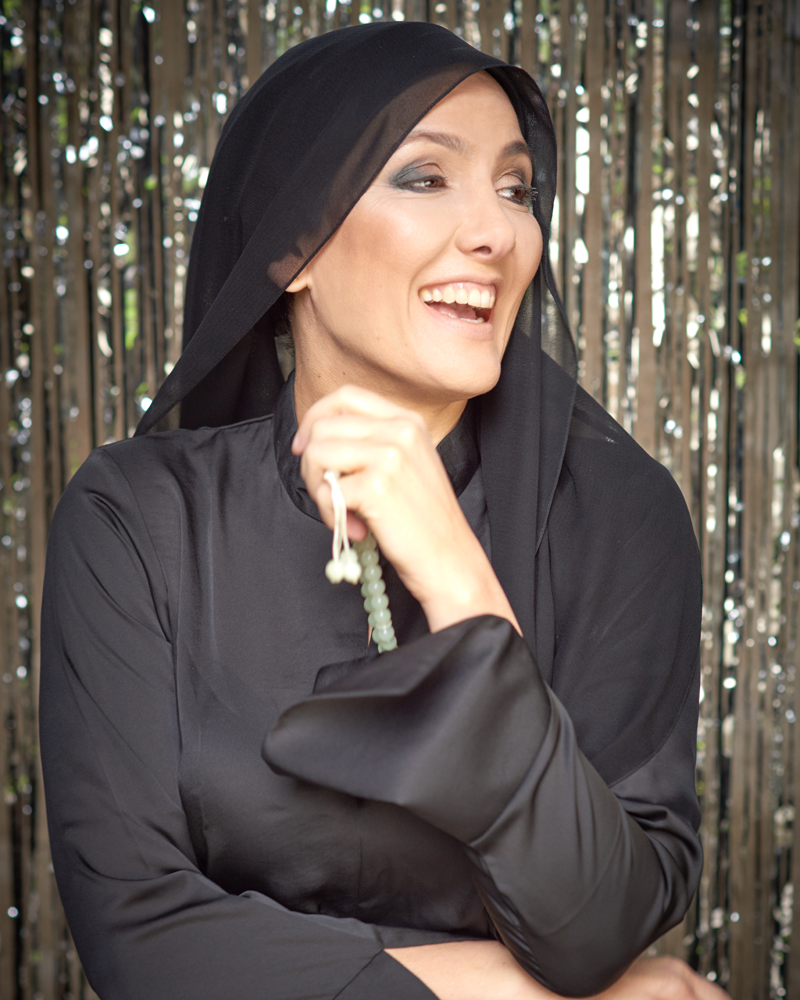Filmmaker Layla Kaylif talks about her struggles in the arts, the societal pressures she faces and why she won’t give up easily
The director Layla Kaylif is relaxing at her family home in Jumeirah after the rigours of a 24-day shoot. She is tired. Filmmaking it turns out, is not as glamorous as it looks.
ALSO READ:
8 Emirati experts-in-their-fields shining a light on the UAE
Silk, cotton and gold: The history of Emirati fashion in the UAE
Best known as a singer/songwriter, it is the first time the British Emirati artist has dabbled with film and she’s unsure what to make of the experience. “Film is such a weird art form,” she says. “I can’t tell you if the film has worked. There’s no way of knowing if it works emotionally until I’ve seen a rough cut of the edit, or until I’ve sat down with the editor. You can direct pretty pictures and you can say ‘that scene was fantastic’, but does that mean anything? Does this film work emotionally? Does this film take you on a journey? Is it cathartic? At the end of it, do you feel something? To me, if you don’t, then the film’s failed.”
The editor responsible for helping Layla Kaylif answer some of these questions will be Eyas Salman, best known for editing Palestinian director Hany Abu-Assad’s Omar and The Idol. Post-production is due to begin in London later this year. Set in 1960s Dubai, the film tells the story of a young boy (played by Syrian actor Eslam Al Kawarit) who works as a professional letter writer for illiterate members of the community and falls in love with the object of one of his customer’s affections. It is a storyline that has been tweaked and re-written over the course of a number of years. It is also a film that Layla herself stars in.

“I knew that I wanted to act in my own film as a kind of tool of myself,” says Layla Kaylif, who worked closely with producer Chris Buschek during the shoot, which took place in Dubai and Sharjah. “It’s like Joni Mitchell said, that when you’re a singer/songwriter you’re the director, you’re the writer and you’re the actor. Because it’s yourself. It seems like an ego trip but it isn’t if you’re in it. “The character I play – the mother of the boy – was a very particular type of woman. She’s very discreet, she’s very otherworldly, and there was nothing big or extravagant about her. And Arab actresses tend to have this kind of exaggerated method. They are overly dramatic. So I said ‘you know what, I’m just going to avoid this situation and I’m going to play her because I know exactly how I want her to be.’”
That the film is being made at all is partly thanks to the IWC Filmmaker Award, which Layla won at the Dubai International Film Festival in 2015. However, she received only half of the US$100,000 prize because the film was not made within 24 months of the award being granted. As a consequence, development of the film has been tough, particularly in relation to funding.
ALSO READ:
Video: Meet Emirati endurance rider Fatima Al Harthi
This Emirati couple has some inspiring advice about making a marriage work
Layla is used to struggles. She has faced numerous challenges throughout her adult life, not least familial pressure, prejudice and the challenge of funding creative projects. “Even things like wanting to be an actress, wanting to be a singer – when I put out my first album I upset some of my relatives here,” says Layla, who changed her surname early on in her career. “Being a singer is completely unacceptable. I’ve always been subject to the pressures that filter through from my father’s family.
“When I was doing my music career I was between a rock and a hard place, because I was too conservative for the pop world, and yet even being a singer and being in the public realm was too much for my Arab relatives. It’s been a real struggle. But as an Arab woman there’s a kind of liberation that comes with age, although I’m missing my music. It’s like I’m missing my main source of joy.” Layla last released an album in 2008, although she has penned the theme song for The Letter Writer and is looking for a way to produce new work.
“I want to do a folk/country record with Sufi-esque themes. So imagine Rumi lyrics in a country song. Does that sound appealing?” she asks with a laugh. “I haven’t quite reached a point where I can say that I’ve fulfilled my musical vision. That still hasn’t happened. Maybe it won’t happen, I don’t know. But it’s still the main driver and not something I’m going to give up easily.”
Words: Iain Akerman
Images: Supplied












